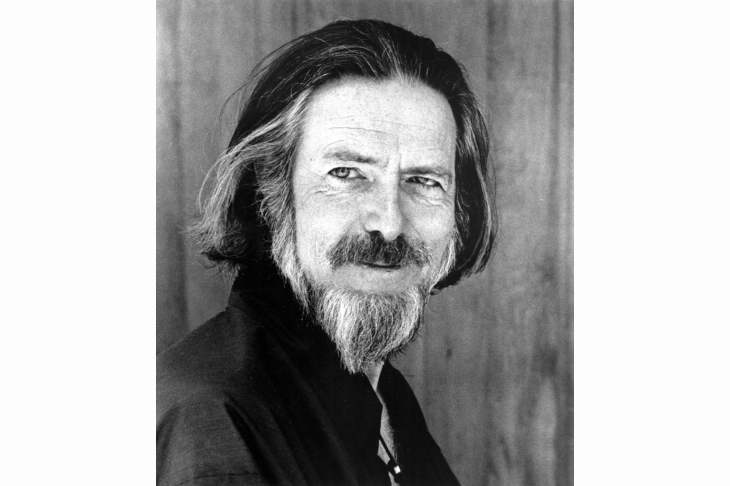Physical Address
304 North Cardinal St.
Dorchester Center, MA 02124

Alan Watts, one of the most influential philosophers of the 20th century, is renowned for his ability to distill complex Eastern philosophies into accessible wisdom that resonates deeply in the Western world. His teachings emphasize the importance of living in the present moment, understanding the true nature of life, and finding joy in everyday existence. Watts’s insights encourage us to break free from societal pressures and embrace a more mindful, fulfilling way of living. In this article, we will explore some of his most profound quotes, examining their meaning and how they can be applied to our lives today.
“This is the real secret of life — to be completely engaged with what you are doing in the here and now. And instead of calling it work, realize it is play.”
Watts believed that the secret to a fulfilling life lies in fully immersing ourselves in the present moment. This quote emphasizes the importance of being completely engaged with whatever we are doing, whether it is work or leisure. By shifting our perspective and seeing our tasks as play rather than work, we can transform mundane activities into sources of joy and fulfillment. This mindset allows us to experience life more vividly and with greater satisfaction.
“The meaning of life is just to be alive. It is so plain and so obvious and so simple. And yet, everybody rushes around in a great panic as if it were necessary to achieve something beyond themselves.”
In this quote, Watts challenges the notion that life must have some grand, external purpose. He argues that the true meaning of life is simply to be alive—to exist and experience the world as it is. The panic that many feel to achieve something beyond themselves is, according to Watts, a distraction from the simple joy of living. By embracing the simplicity of existence, we can find peace and contentment in the present moment.
“You are that vast thing that you see far, far off with great telescopes.”
Here, Watts reflects on the interconnectedness of the self with the universe. This quote suggests that the vastness we observe in the cosmos is not separate from us; rather, it is a reflection of our own being. We are not just small, insignificant entities in a vast universe; we are part of that vastness, intrinsically connected to everything around us. This perspective can help us feel a deeper sense of belonging and purpose in the world.
“Life is not a problem to be solved, but an experience to be had.”
Watts often spoke about the dangers of viewing life as a series of problems that need solving. This quote reminds us that life is meant to be lived and experienced, not dissected and analyzed as if it were a puzzle to be solved. By embracing life as an experience, we can let go of the need to control and understand everything, allowing ourselves to fully engage with the world around us.
“No valid plans for the future can be made by those who have no capacity for living now.”
In this quote, Watts underscores the importance of being present in the moment as a foundation for any future planning. He argues that if we are not fully engaged with the present, our plans for the future will lack substance and grounding. Living in the now provides the clarity and insight necessary to make meaningful and effective plans for the future.
The wisdom of Alan Watts is incredibly relevant in today’s fast-paced, goal-oriented society. His teachings challenge us to slow down, reconnect with the present moment, and find joy in the simple act of living. By applying his insights, we can cultivate a more mindful and fulfilling life, free from the unnecessary stress and anxiety that often accompany our pursuit of external achievements.
In a world that constantly demands more from us, Watts’s advice to treat life as play rather than work can be transformative. Whether in our careers, relationships, or personal pursuits, adopting a playful attitude allows us to enjoy the journey rather than fixating on the destination. His emphasis on living fully in the present moment also serves as a reminder that true contentment comes not from achieving external goals, but from appreciating the richness of life as it unfolds.
Alan Watts was born on January 6, 1915, in Chislehurst, England. He developed an early interest in Eastern philosophy and moved to the United States in the 1930s, where he studied theology and became an Episcopal priest. However, his passion for Zen Buddhism and other Eastern philosophies eventually led him to leave the church and focus on writing and teaching. Watts authored over 25 books and became a well-known speaker, popularizing Eastern thought in the Western world. His unique ability to make complex ideas accessible and engaging has left a lasting legacy. Watts passed away in 1973, but his teachings continue to inspire millions around the world.
Alan Watts’s teachings are more relevant today than ever before, as modern society grapples with issues of stress, disconnection, and the relentless pursuit of success. In an age where technology and social pressures often pull us away from the present moment, Watts’s emphasis on mindfulness and the joy of living offers a powerful antidote. His insights encourage us to slow down, reconnect with ourselves, and find meaning in the simple act of being alive. As people increasingly seek ways to live more intentionally and mindfully, Watts’s wisdom provides timeless guidance that resonates across generations.
Alan Watts was a philosopher who challenged conventional thinking and offered a refreshing perspective on life. His teachings on living fully in the present moment, embracing life as an experience, and finding joy in everyday existence continue to inspire and guide us. By applying his wisdom to our daily lives, we can cultivate a more mindful, fulfilling, and joyful way of living, free from the unnecessary stress and pressures of modern society.